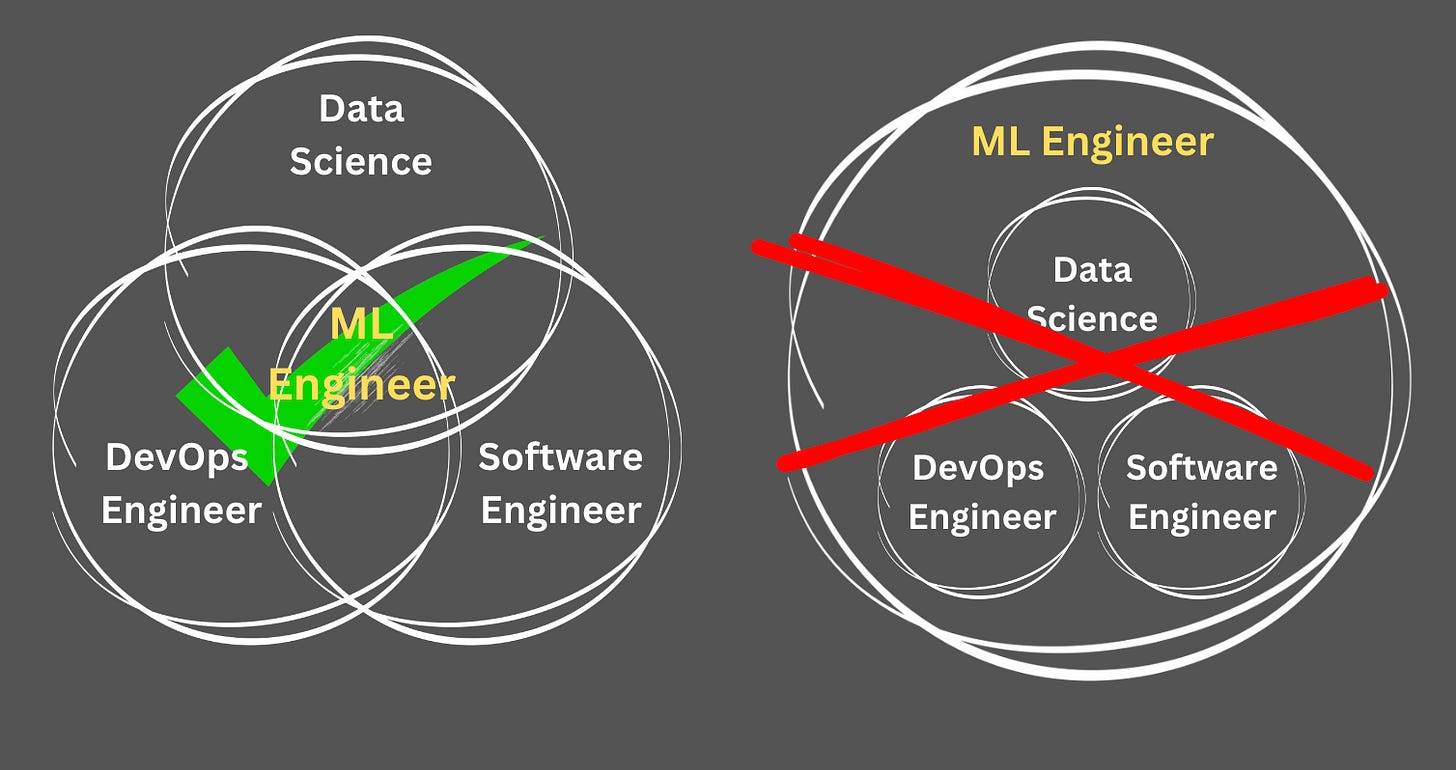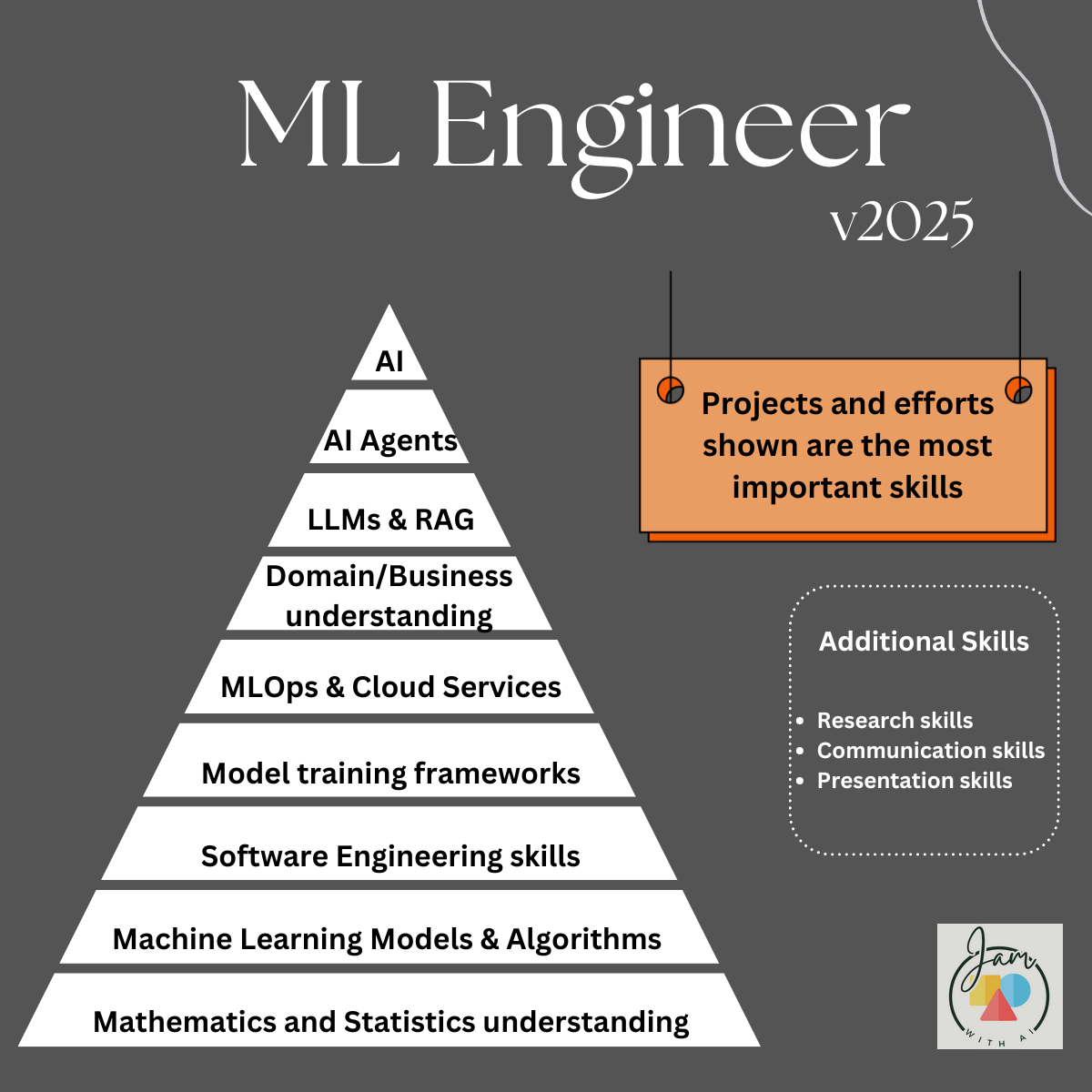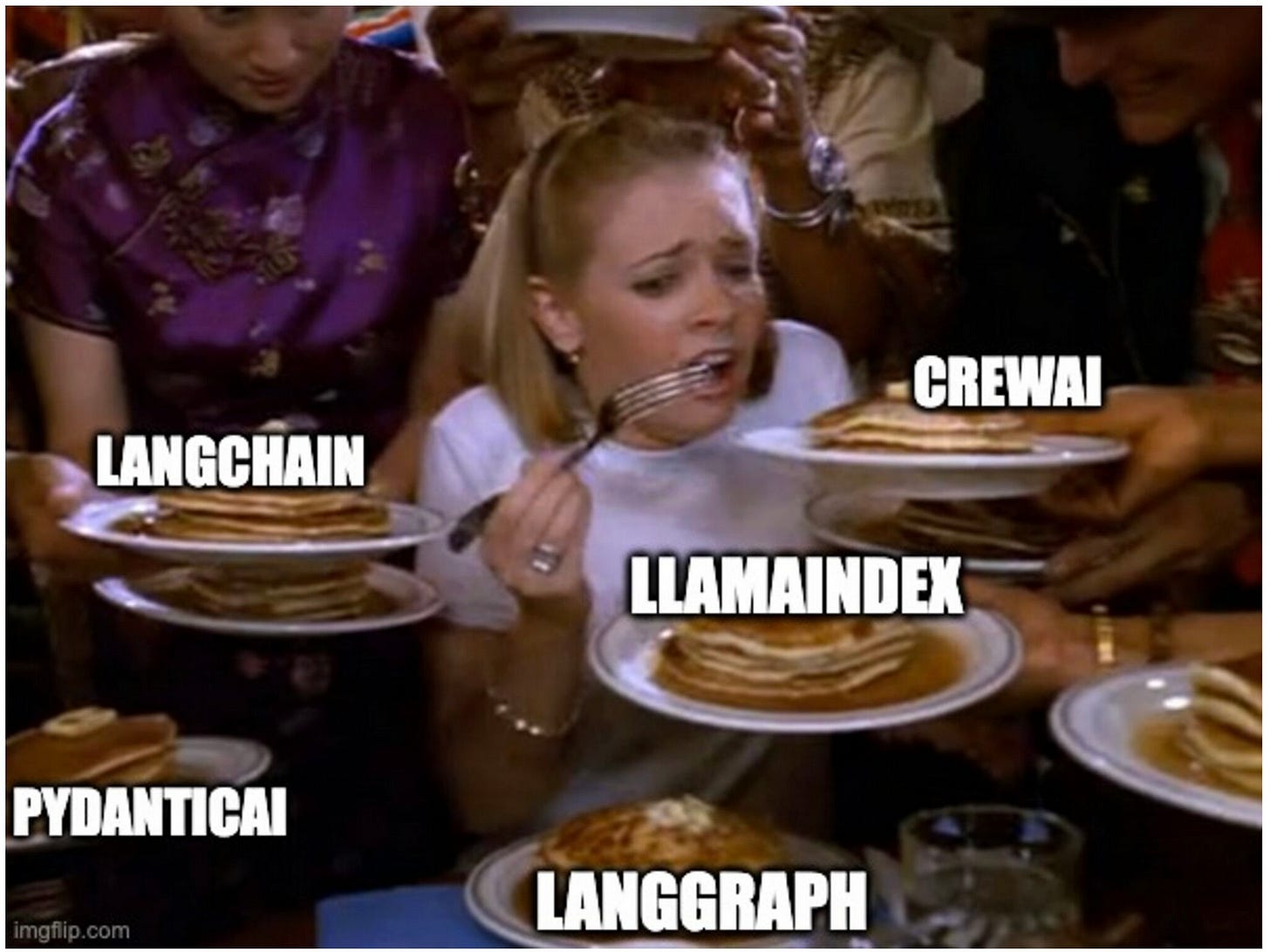Heyloo there!
Today, we’re diving into the essential skills and requirements for becoming a successful ML Engineer in 2025! This also applies to AI Engineer 🚀
Recently, I had the opportunity to help a Master’s student prepare for an ML/AI Engineer role after graduation. Through my experience writing job descriptions, reviewing thousands of CVs, and hiring some amazing Machine Learning Engineers, I realized it would be valuable to share this with broader audience.>
But first, let’s address a common confusion: what’s the difference between ML Engineers and Data Scientists? It’s 2025, and while these roles have been around for a while, people still get them mixed up.
Let’s fix that!
Machine Learning Engineer vs Data Scientist
In simple words:
Data Scientists:
These are people with strong mathematical and statistical backgrounds, combined with domain and business knowledge. They can analyze and research data, tell stories with insights, and translate business problems into models to solve them.
Solving business problems is the main goal of a Data Scientist!
ML Engineers:
These are professionals with strong software engineering skills who focus on designing, building, and deploying complex ML models (often neural networks or generative AI systems) for production use. They ensure models are scalable, efficient, and reliable in real-world applications.
They also need research skills to adapt and apply the latest tools, techniques, and frameworks to real-world problems.
Building ML infrastructure and automating end-to-end ML workflows are the primary goals of an ML Engineer!
Now, here’s where things get tricky: these days, many assume that
ML Engineer role = Data Science + Software Engineering + DevOps
Basically, they think an ML Engineer should know everything a Data Scientist knows and more.
But that’s not true!
An ML Engineer doesn’t need to have complete expertise in Data Science. Having good awareness of it is important, of course.
Regardless, if you’re aiming for long-term success in the field, having a strong mathematical foundation is crucial!
ML Engineer roles aren’t one-size-fits-all. Some lean more toward Data Science, while others focus on Software Engineering, DevOps, or infrastructure building. These variations exist!
And you need to choose the right ones for yourself!
ML Engineer Pyramid
The ML Engineer Pyramid illustrates the essential skills and layers of expertise required for an ML Engineer in 2025.
It starts with foundational knowledge and builds up to advanced capabilities, showing how each layer contributes to becoming a well-rounded ML Engineer.
NOTE: A Machine Learning Engineer does not necessarily possess all of these skills — this pyramid simply highlights the importance of each skill and the foundations.
I’d like to share some resources that can help you build these skills. Below is an exhaustive list of recommendations.
Big disclaimer: These are my personal suggestions. If you think I’ve missed something or feel differently, please share your thoughts in the comments — I’m always happy to learn from you! 😇
Also you don’t need to go through them all! Even understanding the content of one resource from each section is good enough to get started.
‼️ The best way to learn these skills is by practicing them hands-on and building projects!
Here’s a breakdown:
1. Mathematics and Statistics Understanding (Foundation):
I can’t emphasize this enough!!!
If you’re aiming for the long run, you need a solid understanding of mathematics and statistics for machine learning. These skills form the backbone of everything you do in ML/LLM. Literally LLM could be broken down in matrices and derivatives!
Even if you don’t use them directly in your day-to-day career, they will shape your mindset and help you think about ML problems from a mathematical and statistical perspective.
It’s also important to have a good grasp of statistics and hypothesis testing, especially when conducting experimentation and making data driven decisions.
Recommended Resources for Mathematics:
Recommended Resource for Statistics :
2. Machine Learning Models & Algorithms:
I don’t think I need to stress how important this area is! 😄
Understanding foundational ML is very important. I really love below resources. These resources touches parts for the next sections as well!
Cant leave without mentioning the all time famous courses as well:
3. Software Engineering and SQL Skills
ML Engineers need strong programming and software engineering skills to build reliable, maintainable, and scalable systems.
Coming from a non-programming background myself, I was fortunate to work with some incredible software engineers early in my career. I learned a lot by observing their approach and refining my skills through hands-on problem-solving. When I hit unknowns, I also referred to various resources, which significantly helped me grow.
Software engineering proficiency includes:
Building scalable architectures and system design (important for MLOps)
Developing APIs and microservices - working with Async (helpful in AI Agents)
Containerization (e.g., Docker)
Writing unit tests
Mastering version control (e.g., Git), setting up CI/CD pipelines
Load testing, security practices, and more
If you’re not from a software engineering background, start with programming fundamentals and gradually build other skills as you progress.
Resources:
Software engineering books that could be helpful:
It’s also important to have a good understanding of SQL concepts. While LLMs have made writing SQL queries easier, having a solid grasp of these concepts remains essential. SQL is still a foundational skill for working with data effectively.
As for learning SQL, there are plenty of great courses available online. Just google this one 😄
4. Model Training Frameworks:
Familiarity with tools like TensorFlow, PyTorch, and Scikit-learn is essential to train and fine-tune models effectively. Specially in the age of embedding!
Many of the resources I’ve already shared cover these frameworks. I can still add my personal favorite! I read the first version of this book, and it remains a highly recommended resource:
I also think PyTorch’s popularity has grown significantly in recent years. If you’re looking to learn PyTorch, you can check out this nice 25 hours long Youtube video (I didnt watch it completely 😄):
5. MLOps & Cloud Services:
Cloud platforms are essential in ML workflows for development, deployment, and scaling. I suggest starting with a cloud provider that is widely used by your target or current company. For AWS, certifications like ML Associate and AI Practitioner are well-structured starting points.
These certifications provide a clear roadmap to understanding cloud fundamentals and tools specific to machine learning. Also these skills are highly transferable to GCP/Azure.
Regarding MLOps, understanding the key principles of MLOps is equally important, as these skills need to be tailored to the tools and platforms you’re using.
For MLOps principle development, I highly recommend:
Designing Machine Learning Systems: An Iterative Process for Production-Ready Applications [Book]
I will also place the latest book on the advanced AI engineering topics here
AI Engineering: Building Applications with Foundation Models [Book]
I guess there exists enough resources to learn MLOps out there. But if you want anything specific — please add it to the comments.
6. Domain/Business Understanding:
Your impact as an ML Engineer accelerates tremendously if you’re also a domain expert!
Knowing the context of the problem you’re solving is absolutely crucial. Aligning technical solutions with business needs is what adds real value and ensures that your work translates into meaningful outcomes.
Domain expertise can take two distinct forms:
Business Domain Expertise:
Understanding industries like healthcare, finance, or marketing to solve problems specific to those fields.Machine Learning Domain Expertise:
Specializing in areas like NLP, Information Retrieval (ranking), Computer Vision or Reinforcement Learning to bring depth to technical problem-solving.
While having expertise in both domains is rare and highly valuable, proficiency in even one of these areas significantly enhances the impact you can make from day one.
Investing in domain knowledge not only boosts your problem-solving skills but also sets you apart in the field of machine learning!
7. LLMs & RAG (Large Language Models & Retrieval-Augmented Generation):
Trust me, building RAG systems and productionizing LLMs are tasks that are increasingly falling on the shoulders of ML Engineers aka AI Engineers. This trend is already here and is only going to grow!
If you’re just getting started in this area, here are some highly recommended resources to help you:
8. AI Agents:
Next comes AI Agents. Learning about AI Agents is closely connected to LLMs and RAG since these tools are very much used in building AI Agents.
The best way to learn them (including everything above) is by doing them. There is no more theoretical knowledge needed other than the foundation we discussed above.
Please don’t get tied up in choosing the best framework - just go with LangGraph or CrewAI and get started. Important is getting started!!!
Some resources that I could recommend:
LangGraph playlist by LangChain - I love this simple straightforward series
Projects to explore:
Must check out the GenAI_Agents project GitHub repo for practical insights and examples.
9. AI:
If you have reached till here, I guess you are already an expert and I am sure you would be able to pick up anything AI throws at you 😉
Unfortunately/fortunately the journey doesn’t stop here — AI is a constantly evolving field, and staying curious and hands-on is the key to mastering it.
Additional Skills to Keep in Mind:
While technical expertise is crucial, don’t underestimate the power of research skills, communication skills, and presentation skills. These will help you collaborate effectively, explain complex ideas clearly, and share your work with impact.
I hope this article adds some value. Keep building, experimenting, and innovating. You’ve got this! 💪









Just amazing
Helpful, thanks